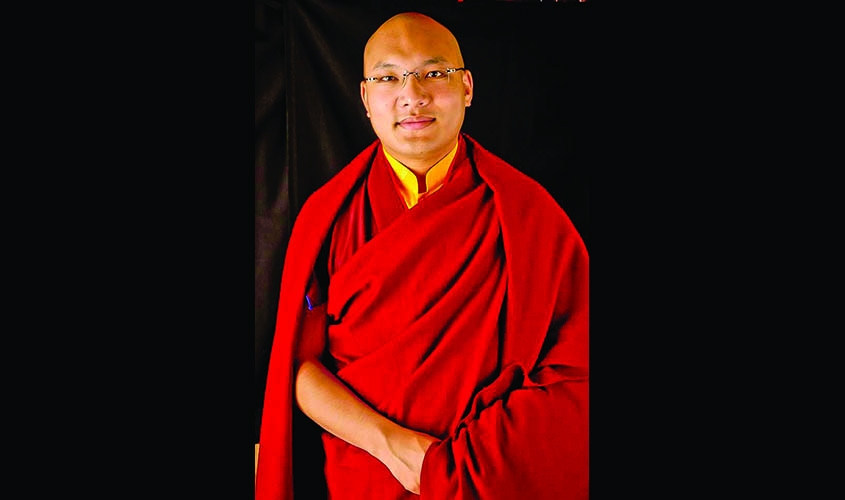Karmapa is the spiritual patron of Bhutan. So the MEA babu’s statement was uncalled for during the Bhutan PM’s visit.
NEW DELHI: The timing of a long, aggressive statement about the Tibetan Buddhist Guru Karmapa by the bureaucrats of Ministry of External Affairs (MEA) could not have been worse. As the Prime Minister of Bhutan, Lotay Tshering was getting ready for an official reception by Prime Minister Narendra Modi on Friday morning, headlines in newspapers on the table of his hotel room in New Delhi were painting Ogyen Trinley Dorje, the 34-year-old head of the Karma Kagyu sect of Mahayana Buddhism as a “law-breaker”, a “fugitive”, a “liar” and one who was “arrogant”.
While Karmapa is considered to be second only to the Dalai Lama in the religious hierarchy of Tibet and Mahayana Buddhism, his position is unique in the context of Bhutan because he happens to be the spiritual patron of Bhutan, especially that of the Bhutanese royal family. One wonders how the people and the government of Bhutan are going to interpret this development, as the timing and tone of the briefing was chosen by none other than the MEA babus. Besides Bhutan, the Karmapa also holds great influence along the entire 4,000 km long Himalayan border belt of India, from Ladakh to Arunachal Pradesh, especially in Sikkim.
In addition, Karmapa also happens to be the only high ranking Tibetan lama who has been recognised both by the Dalai Lama and the Chinese government despite their deep differences on religious and political issues. In view of the fact that the current Dalai Lama is ageing and the young Karmapa holds high chances to be the next leader of the Tibetan movement until the next incarnation of Dalai Lama attains adulthood, Karmapa’s role becomes more crucial for Tibet, India and China. Annoying such a senior religious leader can only make him more prone to Chinese enticements. Such a situation will not only be disastrous for the Tibetan movement, but will also make the entire Indian Himalayan belt more vulnerable to Chinese games.
Karmapa is currently staying in the United States, where he had gone on a three-month visa in May last year on the strength of his Indian Identity-Certificate (IC), which works as a Tibetan refugee’s Indian passport and travel document. If newspapers are to be believed, the MEA is said to have declared Karmapa’s IC as “invalid” because he is reported to have acquired a passport of the Commonwealth of Dominica in March this year. Adding insult to the injury, the MEA official has been reported to have said that the Karmapa will have to apply for Indian visa on his new Dominican passport. Though the MEA has said that the concerned officers have been instructed to issue the visa, but they will decide about
Karmapa’s decision to get a foreign passport reflects his frustration with the Indian establishment. People around him were reported to have said that he was unhappy because of being kept under constant watch of the security agencies and being made to seek permission whenever he wanted to travel outside his Dharamsala.
Interestingly, Karmapa was permitted to travel abroad by the Cabinet Committee on Security (CCS) of Government of India only in 2015, i.e. 15 years after he reached India in a daring escape from Chinese captivity on the New Year’s Eve of 2000. The main reason behind this delay was said to be the differing opinions among major security agencies over the genuineness of his escape from Tibet. A couple of years ago, a close associate of Karmapa told this writer that, “If a country’s security agencies cannot verify the antecedents of His Holiness Karmapa even after keeping him under their close watch and physical control for so many years that doesn’t speak well of their efficiency and capabilities.”
Vijay Kranti is a senior journalist and a close observer of Tibet-China affairs. He is Chairman, Centre for Himalayan Asia Studies & Engagement (CHASE)

